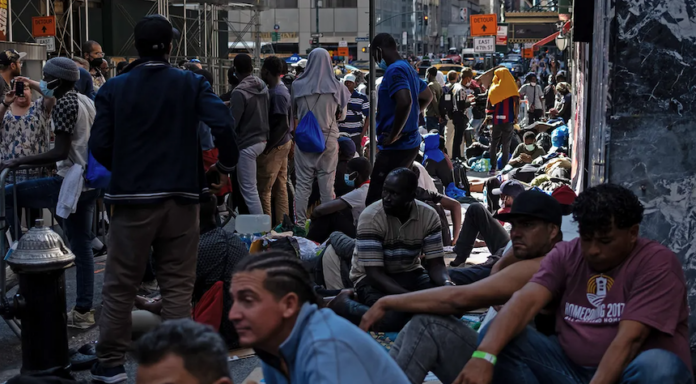The New York Times once described the Jackson Heights area of Queens as the “most culturally diverse neighborhood not only in New York but on the entire planet.” Corona and Elmhurst were its neighboring neighborhoods, and they too were vibrant, ethnically diverse, and known as among the cleanest and safest in the city.
This narrative changed dramatically after the migrant crises of 2023-24. These neighborhoods are now transformed, even Queens Congresswoman Alexandria Ocasio Cortez may not recognize them. Critics, including Ocasio Cortez, accuse Democratic politicians of ignoring the deteriorating conditions.
Will Ocasio Cortez enter these streets and engage with residents, including prostitutes, seeking their support?
The residents of Corona, Jackson Heights, and Elmhurst, once vibrant communities, have descended into a flea market characterized by overflowing garbage on street corners. This has led to unsanitary and uncomfortable conditions. Ramses Frias describes the scene, as resembling a third-world market, with items being sold stolen and openly on sidewalks, diverting businesses from legitimate establishments.
Frias expresses concern over the rising crime rate and the proliferation of illegal vendors on the streets. He highlights the lack of consequences for these activities, contributing to a feeling of lawlessness within the neighborhood.
The video shows a situation located on the periphery, or outside, of Ocasio Cortez’s 14th Congressional District, dominated by progressive politicians.

Despite the area’s diversity and status as a melting pot of migrants, some lack legal status or work permits, forcing them to live on the streets to survive.
Residents are also uncomfortable with the open display of prostitution on the street, particularly disturbing to culturally conservative Hispanics and Asians. Frias notes that the NYPD has limited enforcement, with makeshift brothels quickly returning to former locations following raids.
Curtis Sliwa of the Guardian Angels criticizes the city’s response, citing the lack of arrests and fines for prostitution. He describes the area as prominently advertising red lights, with predominantly Asian women seeking Hispanic customers.
Many residents of these neighborhoods mourn their once-vibrant communities, highlighting the severity of the situation for both residents and the wider New York City community.










